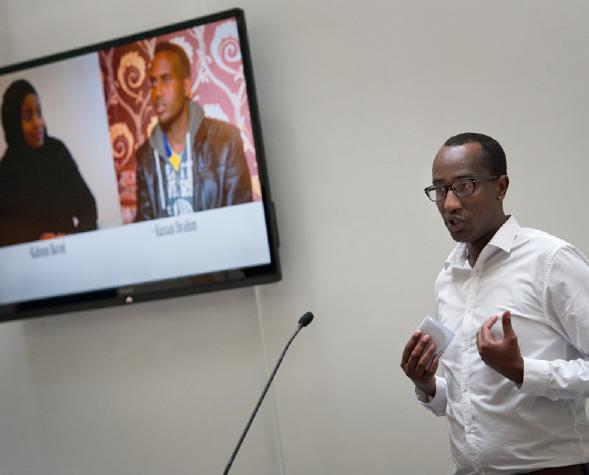
1 minute read
Sasca grew from humble origins of its Elders
COMMUNITY activist Rick Gwilt talks about how Sasca came about and the impact it has had in the community of Moss Side.
Back around 2006, Manchester City Council, in partnership with the voluntary-sector support agency Macc, launched a funding scheme for local community groups called Partnership for Older People Projects (POPP), aiming to encourage communities to do more to support their own ageing populations and work in partnership.
Advertisement
In the case of Manchester’s fragmented Somali community, the funding process threw together several groups which drew their identity more from divisions back in Somalia than any distinctive local role in Manchester.

These groups had limited experi- ence of collaboration and remained quite territory-conscious. When POPP agreed to fund the Somali Elders Project, each group took responsibility for managing a different aspect of the Project.

So while the project broke new ground in developing a focus on Somali social welfare in Manchester, rather than events in Somalia, its management arrangement was a recipe for chaos.
It was to help resolve this conflict that Macc brought me in as a consultant to work with the project in 2007.
Initially there were some lively debates, fuelled by sectional interests, but fortunately community leaders like Mohamed Jeilani understood that without unity nothing would be achieved.
The Elders project was allowed to die a natural death, and in July 2008 we created Sasca as a unified and independent charitable company with a broadly representative board, a business plan and a focus on service delivery.

This marked the start of a long learning curve, as an organisation born out of oral culture, patriarchal society and civil war adjusted to local standards for things like written information (in a foreign language), gender equality and health and safety.
Sasca’s continued survival in such a challenging UK political climate owes much to the persistence of those community leaders who have remained involved since 2006. It has been my pleasure to work with them.
Rick Gwilt, pictured right with members of SASCA






